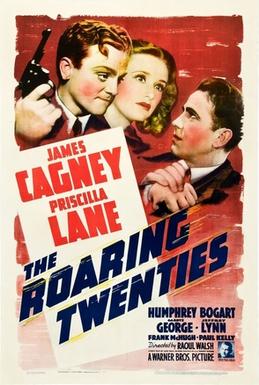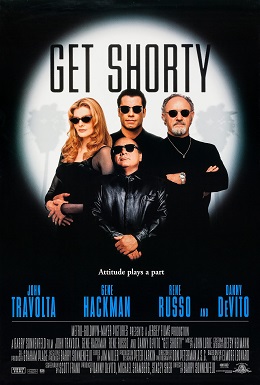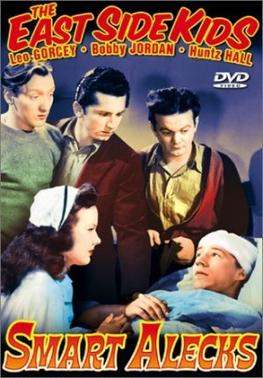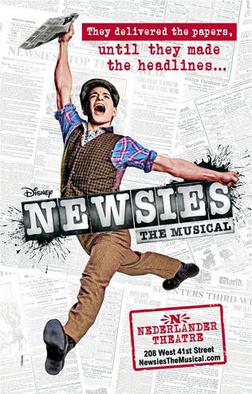The Daily Planet is a fictional newspaper appearing in American comic books published by DC Comics, commonly in association with Superman. The newspaper was first mentioned in Action Comics #9 - Underworld Politics, War on Crime. The Daily Planet building's distinguishing feature is the enormous globe that sits on top of the building.

The Public Enemy is a 1931 American pre-Code gangster film produced and distributed by Warner Bros. The film was directed by William A. Wellman, and starring James Cagney, Jean Harlow, Edward Woods, Donald Cook and Joan Blondell. The film relates the story of a young man's rise in the criminal underworld in Prohibition-era urban America. The supporting players include Beryl Mercer, Murray Kinnell, and Mae Clarke. The screenplay is based on an unpublished novel—Beer and Blood by two former newspapermen, John Bright and Kubec Glasmon—who had witnessed some of Al Capone's murderous gang rivalries in Chicago.

The Sudbury Star is a Canadian daily regional newspaper published in Sudbury, Ontario. It is owned by the media company, Postmedia. It is the largest daily paper in Northeastern Ontario by circulation.
The Little Tough Guys were a group of actors who made a series of films and serials released by Universal Studios from 1938 through 1943. Many of them were originally part of The Dead End Kids, and several of them later became members of The East Side Kids and The Bowery Boys.

The Roaring Twenties is a 1939 American gangster film directed by Raoul Walsh and starring James Cagney, Priscilla Lane, Humphrey Bogart, and Gladys George. The film, spanning the period from 1919 to 1933, was written by Jerry Wald, Richard Macaulay and Robert Rossen. The film follows three men and their experiences during major events in the 1920s, such as Prohibition era violence and the 1929 stock market crash.

Backwoods is a 2008 American horror television film directed by Marty Weiss and starring Ryan Merriman & Haylie Duff. It premiered on June 8, 2008 on Spike TV.

The St. Louis Globe-Democrat was a daily print newspaper based in St. Louis, Missouri, from 1852 until 1986. The paper began operations on July 1, 1852, as The Daily Missouri Democrat, changing its name to The Missouri Democrat in 1868, then to The St. Louis Democrat in 1873. It merged with the St. Louis Globe to form the St. Louis Globe-Democrat in 1875.

Larceny, Inc. is a 1942 American film. Originally released on May 2, 1942, by Warner Bros., the film is a cross between comedy and gangster genres. Directed by Lloyd Bacon, the film stars Edward G. Robinson, Jane Wyman, Broderick Crawford, and Jack Carson, and features Anthony Quinn, and Edward Brophy.

Get Shorty is a 1995 American gangster comedy film directed by Barry Sonnenfeld and written by Scott Frank, based on Elmore Leonard's novel of the same name. The film stars John Travolta, Gene Hackman, Rene Russo, Delroy Lindo, James Gandolfini, Dennis Farina, and Danny DeVito. It follows Chili Palmer (Travolta), a Miami mobster and loan shark who inadvertently gets involved in Hollywood feature film production.

The newsboys' strike of 1899 was a U.S. youth-led campaign to facilitate change in the way that Joseph Pulitzer and William Randolph Hearst's newspapers compensated their force of newsboys or newspaper hawkers. The strikers demonstrated across New York City for several days, effectively stopping circulation of the two papers, along with the news distribution for many New England cities. The strike lasted two weeks, causing Pulitzer's New York World to decrease its circulation from 360,000 papers sold per day to 125,000. Although the price of papers was not lowered, the strike was successful in forcing the World and Journal to offer full buybacks to their sellers, thus increasing the amount of money that newsboys received for their work. This event inspired the 1992 movie musical, Newsies, which was adapted for Broadway on March 29, 2012.

Horace McMahon was an American actor. He was one of Hollywood's favorite heavies.

Smart Alecks is a 1942 American film directed by Wallace Fox and starring the East Side Kids.

Bowery Bombshell is a 1946 American comedy film directed by Phil Karlson and starring the comedy team of The Bowery Boys. It is the third film in the series and was distributed by Monogram Pictures.
Fighting Trouble is a 1956 American comedy film directed by George Blair and starring The Bowery Boys. It was released on September 16, 1956, by Allied Artists. The 42nd film in the Bowery Boys series, it was the first to feature Stanley Clements.

The Doorway to Hell is a 1930 American pre-Code crime film directed by Archie Mayo and starring Lew Ayres and James Cagney in his second film role. The film was based on the story A Handful of Clouds, written by Rowland Brown. The film's title was typical of the sensationalistic titles of many Pre-Code films. It was marketed with the tagline "The picture Gangland defied Hollywood to make!"
The East Side Kids were characters in a series of 22 films released by Monogram Pictures from 1940 through 1945. The series was a low-budget imitation of the Dead End Kids, a successful film franchise of the late 1930s.

Newsies: The Musical is a musical with music by Alan Menken, lyrics by Jack Feldman, and a book by Harvey Fierstein. The show is based on the 1992 musical film of the same name, which in turn was inspired by the real-life Newsboys Strike of 1899 in New York City, with Fierstein's script adapted from the film's screenplay by Bob Tzudiker and Noni White.
Code of the Streets is a 1939 Universal Studios film starring The Little Tough Guys.

A newspaper hawker, newsboy or newsie is a street vendor of newspapers without a fixed newsstand. Related jobs included paperboy, delivering newspapers to subscribers, and news butcher, selling papers on trains. Adults who sold newspapers from fixed newsstands were called newsdealers, and are not covered here. The hawkers sold only one newspaper, which usually appeared in several editions a day. A busy corner would have several hawkers, each representing one of the major newspapers. They might carry a poster board with giant headlines, provided by the newspaper. The downtown newsboy started fading out after 1920 when publishers began to emphasize home delivery. Teenage newsboys delivered papers on a daily basis for subscribers who paid them monthly. Hawkers typically purchased a bundle of 100 copies from a wholesaler, who in turn purchased them from the publisher. Legally every state considered the newsboys to be independent contractors, and not employees, so they generally were not subject to child labor laws.
The Chicago circulation wars were a period of competition between William Randolph Hearst's Chicago Evening American and both Robert R. McCormick's Chicago Tribune and Victor Lawson's Chicago Daily News in the early 1900s that devolved into violence and resulted in more than 20 deaths.














